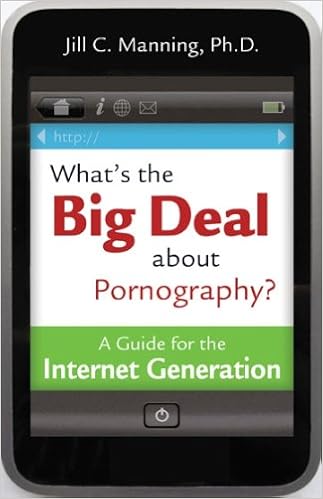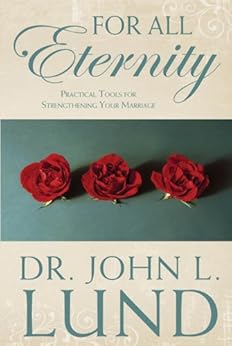Title: What's The Big Deal About Pornography? A guide for the internet generation
Author: Jill C. Manning, PhD
Publisher: Shadow Mountain
Audience: Teenagers, Young Adults, Parents of Teens and Young Adults
Subject: Pornogaphy use
Summary: Manning defines what pornography is and than it's impact on the brain, and than the inlfuence on intimate relationships. The highlight (for me) is the comparison to a Friends episode where two main male characters have their perceptions changed on how a pizza delivery woman should interact with them after watching pornography. There are tools and recommendations for parents on how to talk to their teens about pornography and how to safe gaurd against it.
Score: 9/10
Amazon: $12.87 on Kindle
24 September 2016
18 September 2016
Warning Signs of Suicide
Suicide is the tenth highest reason for death amongst
Canadians, according to Statistics Canada. The highest rate of suicide is
amongst Canadian adults aged 40-54, with about 17 suicides per 100,000.
That
number may be a surprise to some, because we focus so much on preventing
suicide amongst teenagers. And the focus is understandable; we expect our
youths to live long full lives. Suicide is the second cause of death for those
aged 15-19, but at a rate of 9, nearly half of our middle-aged Canadians.
While it is important to be aware of the signs of suicide,
it is not just applicable to teenagers, but for all Canadians.
The new acronym that Mental Health Clinicians are using as a
tool to assess for suicide is: “IS PATH WARM.”
Let’s look at what each letter stands for:
Ideation – Warning
signs that are being communicated about the idea of suicide by threating to
hurt/take own life, looking for ways to hurt/kill self, or talking or writing
about it.
Substance Use – An
increase use, or excessive use of drugs and/or alcohol.
Purposelessness – Losing
the sense of purpose or reason for living.
Anxiety – The
anxiety, or agitation, begins to interfere in daily life, such as being unable
to fall or stay asleep.
Trapped – Feeling
stuck and that there is no way out.
Hopelessness – A
loss of hope for the future
Withdrawal – Withdrawing
from friends, family, and usual activities.
Anger – Uncontrollable
anger, rage and/or revenge.
Recklessness – Participating
in life-risky activities without thinking
Mood Changes – Increased,
unexplained dramatic changes in mood.
Discussing suicide is heavy and discouraging. It is
important to listen and respond with empathy.
Recently the author of Love
Warrior, Glennon Doyle Melton, tackled the topic of suicide with a message
of hope: “Pain comes and goes like
clouds. Love is the Sun. If you’re struggling right now, tell the
monster to shut the hell up and listen to me for a minute: You are loved.
“No matter who you’ve hurt, you deserve forgiveness and you
belong to us. There is a place for you here that was created for you before the
world began that no one else on Earth can fill.
“You are a child of God and everything you have ever been or
are or will become has already been approved. Please, please stay. Stay. First the pain, then the rising. You must
stay for the rising.”
If you or someone
you know is struggling with suicide, visit suicideprevention.ca to find
help or support.
17 September 2016
Book Review: Stand For The Family
Title: Stand For The Family
Author: Sharon Slater
Publisher: Inglestone (Gilbert)
Audience: Advocates for traditional family
Subject: The role and purpose for supporting traditional families
Summary: This is a conservative organizations, Family Watch International (who Slater is the president of), flagship book as they supply evidence and stories for supporting the traditional family while arguing against dismantling it. The book covers a range of highly political and sensitive topics such as motherhood, parental rights, life, gender, and marriage through a right-wing lense.
Score: 6/10
Amazon: $9.99 on Kindle
Author: Sharon Slater
Publisher: Inglestone (Gilbert)
Audience: Advocates for traditional family
Subject: The role and purpose for supporting traditional families
Summary: This is a conservative organizations, Family Watch International (who Slater is the president of), flagship book as they supply evidence and stories for supporting the traditional family while arguing against dismantling it. The book covers a range of highly political and sensitive topics such as motherhood, parental rights, life, gender, and marriage through a right-wing lense.
Score: 6/10
Amazon: $9.99 on Kindle
15 September 2016
Fight vs Flight vs Doll
I found this gem in the Twitterverse, it is a great example of the difference between the Fight and Flight response. Same trigger, different response:
There are only two kinds of people in life pic.twitter.com/aKhgCgiUCQ— Mario Valle Reyes (@mariovallereyes) August 29, 2016
14 September 2016
Delaying entry to Kindergarten may lower risk for ADHD
This is a controversial topic because for many reasons:
- There is a push to have children school ready younger and younger
- Child care is expensive, enrolling in school provides free child care
- Many have had positive experiences enrolling early
- Many have had negative experiences in enrolling later
And let's keep in mind this study was conducted by Danish National Center for Social Research, so their findings may not be applicable to North America, nonetheless, this one section stands out to me:
"In addition to improved mental health of children who are not enrolled in kindergarten until age six, instead of age five, emotional and social skills show improvement, as well."Read the media release in the Inquistr.
12 September 2016
The key to marital success: be humble
Adam Galovan who works for the University of Alberta's Faculty of Human Ecology told the Edmonton Journal “In our results, [the perception of humilty in your spouse] was the strongest predictor of marital satisfaction.”
He further said: “Humility is thinking less of yourself and thinking more of others, so the focus should really be focusing on being caring and compassionate for one’s partner,” he said. “In the end, this likely would lead to them reciprocating and doing things that would make you satisfied about your relationship.”
Read the full article from the Edmonton Journal here (which also has a nice video clip that I was unable to embed)
He further said: “Humility is thinking less of yourself and thinking more of others, so the focus should really be focusing on being caring and compassionate for one’s partner,” he said. “In the end, this likely would lead to them reciprocating and doing things that would make you satisfied about your relationship.”
Read the full article from the Edmonton Journal here (which also has a nice video clip that I was unable to embed)
10 September 2016
Book Review: Violence Against Women: Vulnerable populations
Title: Violence Against Women: Vulnerable populations
Author: Douglas A. Brownridge, PhD
Publisher: Routledge (New York)
Audience: Front-line workers, Social workers, Researchers/Academics in Social Sciences
Subject: Women at risk of violence
Summary: Brownridge is a family violence expert and he outlines, through research, women that are most at risk for violence: cohabitation, post-seperation, step-families, aboriginal, immigrant, disabilties and renting. While he acknowledges that not all women in these situations may be abused, they are at higher risk; and adds that any woman could be the victim of abuse. There is a lot of information and graphs condensed on each page.
Score: 7/10 - highly recommended if working with vulnerable women. (I am biased because Brownridge was one of my professors at the University of Manitoba)
Amazon: $40.62 on Kindle
Author: Douglas A. Brownridge, PhD
Publisher: Routledge (New York)
Audience: Front-line workers, Social workers, Researchers/Academics in Social Sciences
Subject: Women at risk of violence
Summary: Brownridge is a family violence expert and he outlines, through research, women that are most at risk for violence: cohabitation, post-seperation, step-families, aboriginal, immigrant, disabilties and renting. While he acknowledges that not all women in these situations may be abused, they are at higher risk; and adds that any woman could be the victim of abuse. There is a lot of information and graphs condensed on each page.
Score: 7/10 - highly recommended if working with vulnerable women. (I am biased because Brownridge was one of my professors at the University of Manitoba)
Amazon: $40.62 on Kindle
08 September 2016
Tips to help with panic attacks
Here are ten tips, some may work for you, some may not, to help when an anxiety panic attack hits:
- Have an exit plan
- Have someone you can count on ready to call
- Spend time with your pet
- Interact with water
- Have a tranquilizer with you
- Give yourself a massage
- Forward bend
- Stare at yourself in the mirror
- Go for a walk
- Laugh
Read the full article at Healthy Place.
07 September 2016
06 September 2016
Conversation starters about technology use in a current or forming relationship
Katherine Hertlein, associate professor of psychology at the University of Nevada Las Vegas and co-author of The Couple and Family Technology Framework urges couples to have an explicit conversation about how to manage tech use. The ideal time to do it is when two people become serious about their relationship. Since technology is always changing, however, it's necessary for all couples. Here are discussion points:
From Psychology Today.
- What are your expectations about tech use by your partner and by you?
- Exactly what kind of contact does each partner regard as cheating?
- What is appropriate to disclose about the relationship; about your spouse?
- Do you exchange passwords or not?
- Do you tell your partner whom you are texting?
- When is it OK to be anonymous online?
- What, if any, places in the home are off-limits to electronic devices?
- What are rules for use in the car?
- When is it OK to post photos of your children?
- How much checking on each other is OK?
From Psychology Today.
03 September 2016
Book Review: For All Eternity: Practical tools for strengthening your marriage
Title: For All Eternity: Practical tools for strengthening your marriage
Author: John L. Lund
Publisher: Covenant Communications (American Fork)
Audience: Dating or Married Latter-Day Saints, Mormons
Subject: Tips on improving your marriage on a daily basis
Summary: In a marriage guide book tailored to the Latter-Day Saints, Lund shares the differences found in a marriage and recommends ways to create common ground. In particular his book circles around his defintion of Love Languages that we seek acceptance, affection and appreciation through either physical touch, verbally or visually (different from the 5 Love Languages). He is practical in how to learn your love language and style, while then being able to communicate that language and other languages to a spouse.
Score: 7/10
Amazon: $2.58 on Kindle
Author: John L. Lund
Publisher: Covenant Communications (American Fork)
Audience: Dating or Married Latter-Day Saints, Mormons
Subject: Tips on improving your marriage on a daily basis
Summary: In a marriage guide book tailored to the Latter-Day Saints, Lund shares the differences found in a marriage and recommends ways to create common ground. In particular his book circles around his defintion of Love Languages that we seek acceptance, affection and appreciation through either physical touch, verbally or visually (different from the 5 Love Languages). He is practical in how to learn your love language and style, while then being able to communicate that language and other languages to a spouse.
Score: 7/10
Amazon: $2.58 on Kindle
01 September 2016
Subscribe to:
Posts (Atom)




